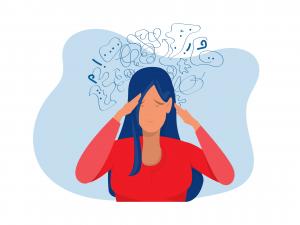
— Dr. Stanford A. Owen
GULFPORT, MISSISSIPPI, UNITED STATES, May 2, 2024 /EINPresswire.com/ — Adults and children with Attention Deficit Disorder (ADD) frequently exhibit emotional dysregulation, manifesting in behaviors ranging from anger and outbursts to oppositional, defiant, and disruptive actions. This dysregulation significantly impacts daily life, affecting both the individuals with ADD and those around them.
Dr. Stanford A. Owen, owner of ADD Clinics in Mississippi, explains, “Emotional dysregulation in ADD can present in various forms including anger, impulsive speech, and hyperactivity. Such behaviors can be notably disruptive in structured settings such as classrooms, family gatherings, or professional environments.”
Identifying and treating emotional dysregulation involves a deep understanding of psychopathology and an integrated approach to mental health. “When trying to decide if, how, and what intervention is needed, it becomes imperative to define any and every underlying condition or conditions that are treatable and reversible,” states Dr. Owen.
Furthermore, ongoing medical issues can exacerbate symptoms of emotional dysregulation. Dr. Owen shares his personal experience, stating, “After just resolving my personal case of sciatica, I can attest it disrupts the ‘norm’. My 9-year-old granddaughter noted loudly that ‘Pops looks disheartened!’ I couldn’t have picked a more accurate choice of words—definitely not my happier-than-I-should-be self.”
Diagnosing and treating these complexities is not straightforward. Patients often present with multiple co-occurring conditions, requiring a collaborative and multidisciplinary approach to treatment. This team may include physicians, mental health counselors, social workers, dieticians, laboratory scientists, and imaging specialists.
The “problem-oriented diagnosis” approach is a method taught to all physicians, involving the listing of each problem as a separate diagnosis. Dr. Owen elaborates, “We literally list each problem as a separate diagnosis, look at that problem on its own accord, then try to solve each problem independently, all the while visualizing the entire problem list.”
For instance, treatments like clonidine can be used not only for its primary purpose as an anti-hypertensive but also to assist with insomnia and improve symptoms of PTSD and anxiety by blocking adrenaline production. Similarly, estrogen replacement therapy can be utilized to alleviate symptoms of menopause such as hot flashes and insomnia, while simultaneously reducing agitation.
Such integrated treatment strategies are essential for effective management of ADD and associated emotional dysregulation. These strategies prioritize simplicity, speed, cost-effectiveness, and safety, aiming to improve the patient’s quality of life rapidly and efficiently.
Dr. Owen emphasizes the significance of such treatments, “These two treatments fit my other criteria when seeking a treatment solution: easy, simple, fast, cheap, and safe. In several weeks the patient is calmer, well slept and rested, has better memory, and is less anxious and excitable.”
The challenge remains in the complexity of diagnosing and managing these conditions, underscoring the need for comprehensive treatment plans that address all underlying factors.
Morgan Thomas
Rhino Digital, LLC
+1 504-875-5036
email us here
![]()
Originally published at https://www.einpresswire.com/article/708375946/understanding-emotional-dysregulation-in-adults-and-children-with-add



